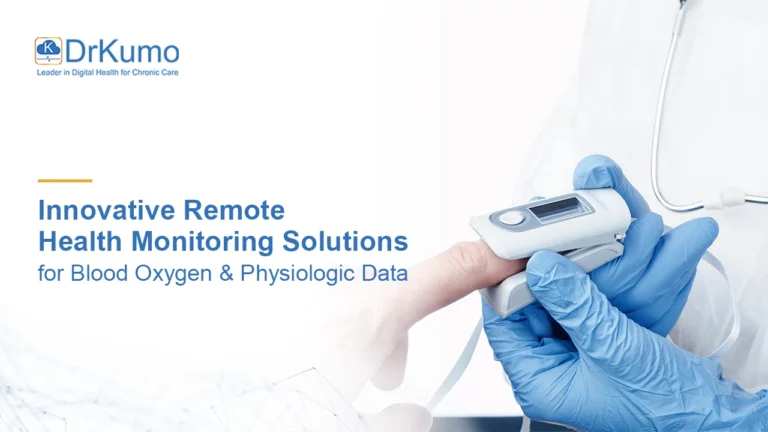Managing chronic conditions requires ongoing medical attention and self-management, which can be challenging for patients and their caregivers. Chronic care management for caregivers and clinicians is essential to managing chronic conditions and ensuring that patients receive comprehensive care. This article will discuss tips and resources for caregivers to manage chronic conditions effectively. We will also explore evidence-based chronic care management practices and the importance of utilizing available resources to improve health outcomes and quality of life for chronic disease patients and their caregivers.
Chronic Care and Conditions that Qualify for chronic care management
Chronic care refers to the ongoing management and treatment of long-term health conditions that typically do not have a cure but can be managed with proper medical attention, lifestyle changes, and medication.
Examples of chronic conditions that may qualify for chronic care management include:
- Diabetes
- Hypertension (high blood pressure)
- Chronic obstructive pulmonary disease (COPD)
- Asthma
- Heart disease
- Chronic kidney disease
- Arthritis
- Cancer
- HIV/AIDS
- Alzheimer’s disease and other forms of dementia
Overview of Chronic Care Management in the Health Care System
Chronic care management (CCM) is a model of medical care that aims to support people with chronic conditions like heart disease, arthritis, and obesity. CCM services are designed to help patients with one or multiple chronic conditions expected to last at least a year. To be eligible for CCM services, patients must be enrolled in Medicare Part B.
The care team responsible for chronic disease care includes a primary care physician, a specialist, and other care providers. The team develops a comprehensive care plan personalized to the patient’s needs, including self-management support, prevention, and ongoing medical attention.
CCM services also include coordination of care between the different providers and delivery systems, decision support using clinical information systems, and regular check-ins with the patient to monitor their health status. This care management provides resources to help patients with chronic illnesses manage their condition and improve their quality of life.
Chronic care management includes non-face-to-face services, such as telephonic support, electronic health records, and face-to-face office visits. CCM services are typically provided through a value-based payment model rather than a fee-for-service model.
One of the aims of CCM services is to reduce the disparity in health outcomes between patients with chronic conditions and the general population. By providing evidence-based care practices and ongoing support, CCM services can help patients better manage their condition and prevent hospitalizations.
In conclusion, CCM services are designed to provide comprehensive care and support for Medicare beneficiaries with multiple chronic conditions. CCM services aim to improve health outcomes and quality of life for chronically ill patients and their caregivers by providing ongoing medical attention, self-management support, and regular check-ins with healthcare providers.
Tips for Chronic Care Management Services
Managing chronic conditions can also be overwhelming for patients, their caregivers, and healthcare providers. Here are some tips to help manage chronic conditions effectively:
A. Care Management
- Importance of a care plan: Develop a comprehensive care plan with the healthcare provider that includes information on medications, treatment plans, appointments, and self-care strategies.
- Coordinating with healthcare providers: Communicate with the healthcare team regularly to ensure everyone is on the same page regarding the patient’s care plan.
- Self-management support: Encourage the patient to actively manage their condition by providing resources and education on self-care strategies.
B. Medication Management
- Tips for managing multiple medications: Use pill organizers, set medication reminders, and ensure all medications are taken as prescribed.
- Understanding medication side effects: Educate the patient about potential side effects and inform healthcare providers if side effects occur.
- Importance of medication adherence: Ensure that the patient takes medications as prescribed to prevent complications and manage symptoms effectively.
C. Lifestyle Management
- Nutrition and exercise tips: Encourage the patient to maintain a healthy diet and exercise regularly, as it can help manage symptoms and improve overall health.
- Self-care strategies for caregivers: Taking care of oneself is crucial for caregivers to avoid burnout and maintain their health and well-being.
- Behavioral and mental health support: Chronic conditions can impact mental health, and caregivers should encourage the patient to seek behavioral and mental health support when needed.
Resources for Chronic Care Management
There are several resources available to help caregivers manage chronic conditions effectively. Here are some examples:
A. Medicare Chronic Care Management (CCM) Services
- Overview: CCM services are provided to Medicare beneficiaries with two or more chronic conditions that are expected to last at least a year. These services include comprehensive care practices, planning, coordination of care, and regular check-ins with healthcare providers.
- Eligibility: Patients must be enrolled in Medicare Part B and have two or more chronic conditions to qualify for CCM services.
- Benefits: CCM services can improve health outcomes and quality of life for patients with chronic conditions and provide valuable support to caregivers.
B. Chronic Care Model (CCM)
- Overview: The CCM is a health care delivery system designed to provide comprehensive care for chronic patients. It focuses on evidence-based practices and involves a team-based approach to care management.
- Benefits: The CCM can improve health outcomes and quality of life for patients with chronic conditions and provide valuable support to caregivers.
C. Electronic Health Record (EHR) Systems
- Overview: EHR systems allow healthcare providers to access patient records and manage care more efficiently. They can also improve communication between healthcare providers and caregivers.
- Benefits: EHR systems can improve care coordination and help caregivers stay informed about the patient’s care plan and treatment.
D. Local and National Support Organizations
- Overview: Several local and national organizations provide resources and support to patients and caregivers managing chronic conditions.
- Benefits: These organizations can provide education, emotional support, and practical resources to help caregivers manage chronic conditions effectively.
Evidence-Based Chronic Care Management Practices
Effective chronic care management relies on evidence-based practices that have been shown to improve health outcomes and quality of life for people with chronic conditions. Here are some examples of evidence-based chronic care management practices:
A. Comprehensive Care Planning
- Overview: Comprehensive care planning involves creating a personalized care plan considering the patient’s medical history, current condition, and treatment goals.
- Benefits: Comprehensive care planning can improve patient satisfaction, health outcomes, and quality of life and help caregivers provide better care.
B. Care Coordination
- Overview: Care coordination involves facilitating communication and collaboration between healthcare providers and other care team members, including caregivers.
- Benefits: Care coordination can improve care quality, reduce hospitalizations and emergency department visits, and improve patient satisfaction.
C. Self-Management Support
- Overview: Self-management support involves providing patients with the tools and resources to manage their condition effectively, including education, self-monitoring, and coaching.
- Benefits: Self-management support can improve patient self-efficacy, self-care behaviors, and health outcomes and reduce healthcare costs.
D. Regular Monitoring and Follow-Up
- Overview: Regular monitoring and follow-up involve tracking the patient’s progress and adjusting the care plan as needed.
- Benefits: Regular monitoring and follow-up can help identify problems early, prevent complications, and improve health outcomes.
E. Patient-Centered Care
- Overview: Patient-centered care involves considering the patient’s preferences, values, and beliefs when creating a care plan.
- Benefits: Patient-centered care can improve patient satisfaction, adherence to treatment, and health outcomes.
DrKumo RPM Solutions to Support Patient Primary Care and Better Health
In addition to the tips and resources mentioned, remote patient monitoring (RPM) can also be essential for effective chronic care management. RPM involves using technology to remotely track a patient’s vital signs, symptoms, and health behaviors, allowing healthcare providers to monitor their condition and intervene when necessary.
DrKumo, a user-friendly solution powered by state-of-the-art, HIPAA-compliant, mobile-enabled, continuous real-time monitoring, and AI/ML engine, can help caregivers, healthcare providers, and patients manage chronic conditions more effectively by providing more accurate and timely information about their health status. It can also help healthcare providers identify potential problems early on, prevent complications, and tailor treatments to patients’ needs. By incorporating DrKumo RPM solutions into their chronic care management plan, caregivers can provide more comprehensive and proactive care for their loved ones. It can also provide peace of mind and reassurance for the caregiver and patient, knowing that their health is closely monitored and managed.
Takeaway
Caregiving for someone with a chronic condition requires dedication, patience, and a willingness to learn and adapt. By using the tips and resources we have discussed in this article and staying informed about the latest best practices in chronic care management, caregivers and healthcare providers can provide the best possible care for their loved ones.
Consider incorporating remote patient monitoring into your chronic care management plan and practices. Contact DrKumo now!








